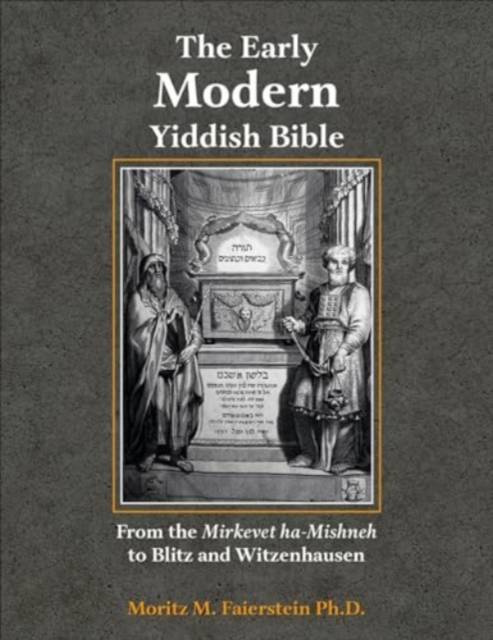
Onze Vivlio e-readers ondervinden momenteel synchronisatieproblemen. We doen er alles aan om dit zo snel mogelijk op te lossen. Onze excuses voor het ongemak!
- Afhalen na 1 uur in een winkel met voorraad
- Gratis thuislevering in België vanaf € 30
- Ruim aanbod met 7 miljoen producten
Onze Vivlio e-readers ondervinden momenteel synchronisatieproblemen. We doen er alles aan om dit zo snel mogelijk op te lossen. Onze excuses voor het ongemak!
- Afhalen na 1 uur in een winkel met voorraad
- Gratis thuislevering in België vanaf € 30
- Ruim aanbod met 7 miljoen producten
Zoeken
Omschrijving
The translation of the Bible into the vernacular is a venerable Jewish tradition, more than two thousand years old. Ashkenazi Jewish culture was a latecomer to the vernacular Bible, and it was only in the sixteenth century that the Yiddish Bible made its appearance in print. Almost one hundred years ago, Wilhelm Staerk and Albert Leitzmann's survey of Early Modern Yiddish Bible translations was the first attempt to define this genre of Early Modern Yiddish literature. In the intervening century there has been relatively little scholarly interest in these texts. The purpose of the present study is to survey the present state of research in this field and place these works in the context of the popular religious culture of Ashkenazi Jewry, which is defined by its use of Yiddish as a means of both oral communication and literary production. The subject of this study is every Yiddish work from the sixteenth and seventeenth centuries that is directly or indirectly related to the Bible. The survey begins with the Mirkevet ha-Mishneh, the first published Yiddish book, which is a biblical concordance, published in Cracow, 1534-36, and concludes with the two competing translations of the entire Bible into Yiddish by Yekutiel Blitz and Joseph Witzenhausen, published in Amsterdam, 1676-86. (These were translations without any accompanying commentaries, and were modeled on Protestant Bibles, like the English King James, or the German Luther Bible.) The study includes not only translations of biblical books, but also adaptations, reworkings, and paraphrases of biblical texts, appearing in diverse literary styles, by a wide variety of authors. King David, for example, is presented in the Shmuel Bukh as a combination of medieval chivalric hero and rabbinic scholar who is careful to observe the strictures of Halakhah. The story of Jonah is retold through a midrashic lens, and concludes with a kabbalistic parable that analogizes Jonah's journey to that of the soul from conception through life, death, and return to its heavenly source. Some authors take great liberties with the biblical text. The author of the paraphrase of Isaiah only includes what he considers to be prophetic utterances and disregards the rest of the book. Another author decides that the second half of the Torah is too legalistic and not worth retelling, so he ends his commentary after the giving of the Torah on Mount Sinai. As for the Five Scrolls, Lamentations is too depressing so he ignores it. There are also surprising inclusions in these volumes, such as the books of Judith and Susanna from the Apocrypha, and the very colorful medieval version of the Book of Ben Sira, which is considered by modern scholars to be a parody.
Specificaties
Betrokkenen
- Auteur(s):
- Uitgeverij:
Inhoud
- Aantal bladzijden:
- 416
- Taal:
- Engels
Eigenschappen
- Productcode (EAN):
- 9780878202362
- Verschijningsdatum:
- 31/12/2023
- Uitvoering:
- Hardcover
- Formaat:
- Genaaid
- Afmetingen:
- 207 mm x 260 mm
- Gewicht:
- 371 g

Alleen bij Standaard Boekhandel
+ 153 punten op je klantenkaart van Standaard Boekhandel
Beoordelingen
We publiceren alleen reviews die voldoen aan de voorwaarden voor reviews. Bekijk onze voorwaarden voor reviews.











